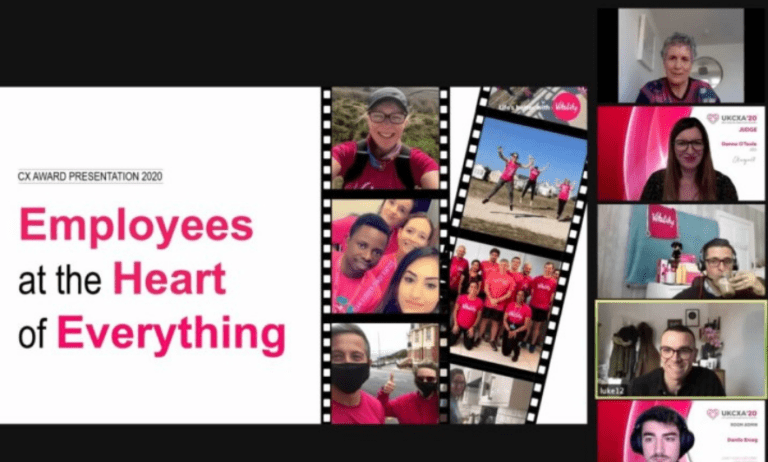Why the savviest companies put awards front and centre of their SALES strategy
Nowadays, the savviest, fastest-growing, most forward-thinking companies are putting awards front and centre of their SALES strategy. Why?

Nowadays, the savviest, fastest-growing, most forward-thinking companies are putting awards front and centre of their SALES strategy. Why?

Welcome to our first monthly newsletter of 2021! Here are just some of the awards you could be entering right now in January 2021.

Does your business need a boost right now? We’re sharing our insights to get your business through with the motivation & power you need to come out stronger

Find out the inspirational individuals who have made The New Year Honours List 2021 and what recognition actually does for people.

2020 has been one of the most difficult and tumultuous years, thankfully it hasn’t all been so bad. Here is our 2020 year in review and our plans for 2021!

With our ‘Who wins when you win?’ initiative, we’re delighted to be supporting local projects that make a real difference to the surrounding community.

2020 has impacted all businesses but here’s just one lesson you can learn from award-winning entrepreneurs to help your business thrive in 2021!

2020: The year of virtual award ceremonies, how are award organisers ensuring finalists and winners still have a great experience in a virtual world?

With stricter restrictions coming back into effect to tackle Covid-19, we want to let our contacts and clients know that we are still here for you.

Frontline key workers and volunteers have been honoured for their contributions during the Covid-19 pandemic in the 2020 Queen’s Birthday Honours list.

Trust has now become the number 2 reason that people buy, beaten to the top of the list only by price. So, what can you do to make your customers trust you?

Enter and win business awards to raise your profile and boost your business. Here are some awards to enter in October 2020. Get in touch if you want to win.
End of content
End of content
Subscribe for alerts on awards entry opening & closing dates, news on nominees & winners, and tips & tricks for your awards entry strategy.
August Recognition Business Awards Entry Writers
We firmly believe that the internet should be available and accessible to anyone, and are committed to providing a website that is accessible to the widest possible audience, regardless of circumstance and ability.
To fulfill this, we aim to adhere as strictly as possible to the World Wide Web Consortium’s (W3C) Web Content Accessibility Guidelines 2.1 (WCAG 2.1) at the AA level. These guidelines explain how to make web content accessible to people with a wide array of disabilities. Complying with those guidelines helps us ensure that the website is accessible to all people: blind people, people with motor impairments, visual impairment, cognitive disabilities, and more.
This website utilizes various technologies that are meant to make it as accessible as possible at all times. We utilize an accessibility interface that allows persons with specific disabilities to adjust the website’s UI (user interface) and design it to their personal needs.
Additionally, the website utilizes an AI-based application that runs in the background and optimizes its accessibility level constantly. This application remediates the website’s HTML, adapts Its functionality and behavior for screen-readers used by the blind users, and for keyboard functions used by individuals with motor impairments.
If you’ve found a malfunction or have ideas for improvement, we’ll be happy to hear from you. You can reach out to the website’s operators by using the following email
Our website implements the ARIA attributes (Accessible Rich Internet Applications) technique, alongside various different behavioral changes, to ensure blind users visiting with screen-readers are able to read, comprehend, and enjoy the website’s functions. As soon as a user with a screen-reader enters your site, they immediately receive a prompt to enter the Screen-Reader Profile so they can browse and operate your site effectively. Here’s how our website covers some of the most important screen-reader requirements, alongside console screenshots of code examples:
Screen-reader optimization: we run a background process that learns the website’s components from top to bottom, to ensure ongoing compliance even when updating the website. In this process, we provide screen-readers with meaningful data using the ARIA set of attributes. For example, we provide accurate form labels; descriptions for actionable icons (social media icons, search icons, cart icons, etc.); validation guidance for form inputs; element roles such as buttons, menus, modal dialogues (popups), and others. Additionally, the background process scans all the website’s images and provides an accurate and meaningful image-object-recognition-based description as an ALT (alternate text) tag for images that are not described. It will also extract texts that are embedded within the image, using an OCR (optical character recognition) technology. To turn on screen-reader adjustments at any time, users need only to press the Alt+1 keyboard combination. Screen-reader users also get automatic announcements to turn the Screen-reader mode on as soon as they enter the website.
These adjustments are compatible with all popular screen readers, including JAWS and NVDA.
Keyboard navigation optimization: The background process also adjusts the website’s HTML, and adds various behaviors using JavaScript code to make the website operable by the keyboard. This includes the ability to navigate the website using the Tab and Shift+Tab keys, operate dropdowns with the arrow keys, close them with Esc, trigger buttons and links using the Enter key, navigate between radio and checkbox elements using the arrow keys, and fill them in with the Spacebar or Enter key.Additionally, keyboard users will find quick-navigation and content-skip menus, available at any time by clicking Alt+1, or as the first elements of the site while navigating with the keyboard. The background process also handles triggered popups by moving the keyboard focus towards them as soon as they appear, and not allow the focus drift outside it.
Users can also use shortcuts such as “M” (menus), “H” (headings), “F” (forms), “B” (buttons), and “G” (graphics) to jump to specific elements.
We aim to support the widest array of browsers and assistive technologies as possible, so our users can choose the best fitting tools for them, with as few limitations as possible. Therefore, we have worked very hard to be able to support all major systems that comprise over 95% of the user market share including Google Chrome, Mozilla Firefox, Apple Safari, Opera and Microsoft Edge, JAWS and NVDA (screen readers).
Despite our very best efforts to allow anybody to adjust the website to their needs. There may still be pages or sections that are not fully accessible, are in the process of becoming accessible, or are lacking an adequate technological solution to make them accessible. Still, we are continually improving our accessibility, adding, updating and improving its options and features, and developing and adopting new technologies. All this is meant to reach the optimal level of accessibility, following technological advancements. For any assistance, please reach out to